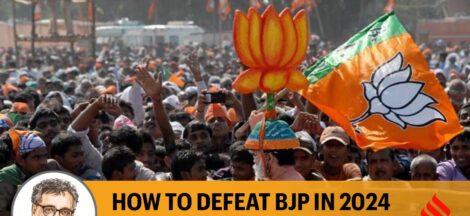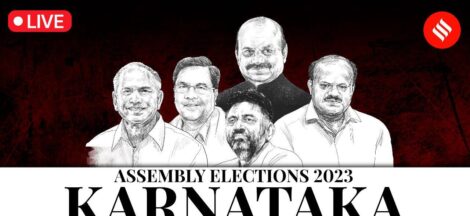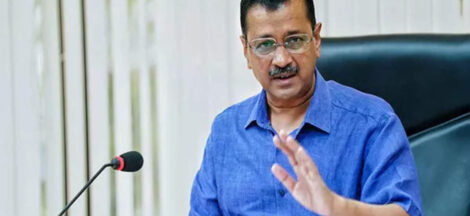By K Raveendran
The BJP’s disconnect with Dalits is well-known. So, nobody can be faulted for seeing a sinister move in the I&B ministry’s advisory to media units not to use the term Dalit while referring to Scheduled Castes. The Dalit word has been posing the ruling establishment a challenge of unprecedented proportions, even threatening the chances for a second term for the Modi government. The word symbolised an emerging new identity for India’s oppressed people, seeking to catch up with an order that perpetrated centuries of exploitation and injustice against them.
Although the government had no role in bringing the original petition by a Nagpur resident calling for an end to the use of the Dalit word, it has used the case to push its own agenda. There is a series of intriguing twists in the story, with the government using every opportunity to guide its course to the desired end. First it tells the Nagpur bench of the Bombay High Court hearing the petition that it is inclined to issue an order banning the use of the word. Then the petitioner presses for its implementation, which the court grants.
This is followed by a notification by the Ministry of Social Justice and Empowerment in March this year, advising the Central and state governments to refrain from using the word Dalit. The petitioner then cites the circular and argues that in light of the circular media units need to be directed to stop using the word and points at I&B ministry and Press Council of India and respondents. The court is not in disagreement. And based on the court’s direction, the I&B ministry issues the advisory, insisting that it is at the behest of the court.
The original petition had been filed by one Pankaj Meshram, the only surviving victim of the caste carnage of a Dalit family at a place called Khairlanji, some 80 km from Nagpur in 2006. Meshram filed the petition before the Nagpur bench, asking for the word to be struck down because it conveyed a state of mind of helplessness and oppression. He went from office to office, seeking remedy for his complaint for over a decade without much success and moved the high court two years ago with a PIL seeking court intervention. In June this year, a two-member bench granted his prayer.
But what is not to be lost sight of is that in the last two years the Dalit narrative has undergone a huge transformation. The term Dalit was no longer about helplessness and submissiveness felt by Pankaj Meshram when he decided to move the court; it acquired a new meaning that conveyed defiance and an assertive new identity for the oppressed people. It conveyed a new sense of power and appeal for the community, which acted as a rallying point for its members to unite and demand their due. This was of course the biggest affront to the established order, nurtured and nourished by upper caste politics, the staple diet of BJP, Sangh Parivar and other parties.
The nomenclature of Scheduled Caste is just the antithesis of all this. It aptly describes the state of mind that Pankaj Meshram was lamenting about while he took up his cause. But today Dalit symbolises a new attitude of defiance and a resolve not to take things lying down anymore. And this thought simply unsettles the Establishment. That is why the government is keen to banish the word, at least from all official records on the ground that the Constitution only refers to Scheduled Caste.
Dalits have now realized what it can mean to be a Dalit. So the community has already indicated its resolve to fight the government move. And those who have joined the cause include Union Minister Ramdas Athawale of the Republican Party of India, an ally of the BJP. Athawale says he is moving the Supreme Court challenging the Bombay High Court directive, insisting that the term Dalit symbolises the struggle to give the community its rights.
The government can use whatever term it deems fit for its records. But it is for the community to decide what its members would prefer to be known by. And as of now, the community is overwhelmingly in favour of Dalit. No court or government can arbitrarily decide to change that. The court can invoke Constitution only when the community itself has objection to the usage of certain term on the ground that it perceives such word to be an insult or it hurts their sentiments. If they see positivity in their identity as Dalits, there is nothing that anybody can do to stop them.
In fact, the Dalit assertion seems all set to bring about a paradigm shift in national politics and this very thought has unsettled the perpetrators of their exploitation, including political parties, who have been profiting from their submissiveness. And the aggrieved include even the so-called backward class leaders, who have been using their people to further their personal interests rather than the welfare of the community. Dalit assertion under a new emerging leadership is a threat to exploitative politics and its order and that is why their consolidation is becoming increasingly unpalatable to the government, whose sympathies invariably lie on the side of the exploiters. (IPA Service)
The post Why Govt Wants Dalits To Be Called Only Scheduled Castes appeared first on Newspack by India Press Agency.


